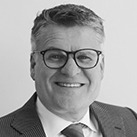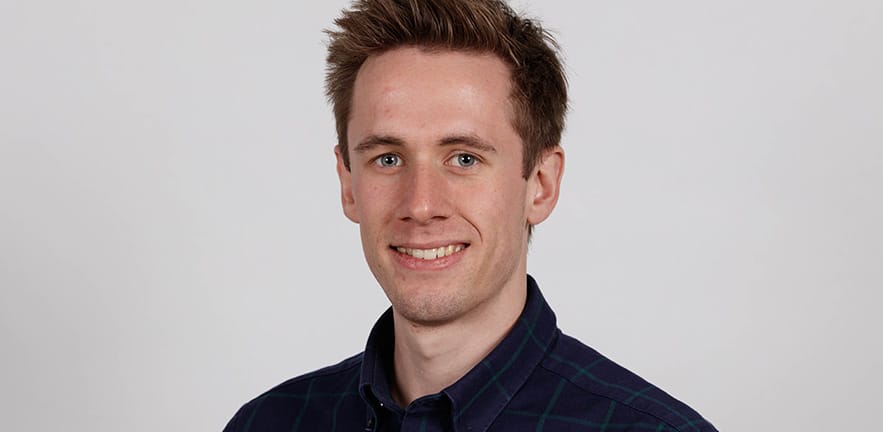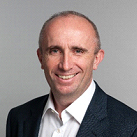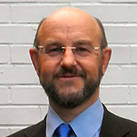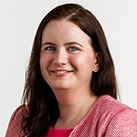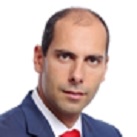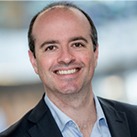12th Risk Summit (2021)

23 Jun 2021
14:00 -17:30
GMT +1
Open to: Specialists and business managers, including threat specialists, academics, policy-makers, practitioners and advisors

Online
(where applicable, further details sent upon registration)
Transitioning to Net Zero – Managing the Risks
A pandemic-inspired focus on corporate resilience is giving way to a new long-term agenda as companies begin truly to face up the disruptive implications and impacts of climate change. As governments push for transition to imagined ‘green economies’ and towards targets for net zero carbon, climate risk is moving to the centre of companies’ debates over their strategies and processes as well as their leadership, workforces and cultures. Post COVID, there is pressure for the resumption of global trade and the return of economic growth. But at what environmental and other external costs? Societal expectations are changing fast, and there is growing awareness of rising climate dangers associated with today’s economic paradigms. Can businesses keep up? Can they be part of the solution? Can they even lead the way?
Our 2021 Risk Summit will explore how companies are responding to the real and present threats of the climate crisis. How are they beginning to finance themselves differently as they seek to show that their activities are more environmentally sustainable? Big investors wield huge clout and are making ever more demands for investable companies to show ‘green’ credentials, commitment and credibility. Can financial innovation play a role?
But it’s about more than just money. Supply chains have been exposed as vulnerable to systemic shocks, whether from pandemics, freak blockages of key trade routes, or geo-politics as US-China tensions mount. As climate change inexorably emerges as an ever-more important risk factor, how can companies reconfigure their operations to meet a more demanding future? What steps are required and how confident can we be that companies can not only respond to the climate crisis, but also thrive and create the future wealth required to sustain human ingenuity and prosperity?
We will explore these topics with a range of specialists and business managers, including senior executives, corporate advisors, financial and other experts.
Registration closed
Registration for this event is closed. If you are interested to hear about upcoming events and other Centre-related news and resources, please join our mailing list.

Programme
Day 1
23 June 2021
14:00 – 14:10
Welcome & Introductions
Cambridge Centre for Risk Studies
Professor Daniel Ralph and Andrew Freeman
14:10 – 14:30
Plenary Session 1: Keynote address
Climate Change, The Four Sciences, and What they mean for Investors Who May be Confusing ‘Like’ and ‘Likely’
Harald Walkate, Head of ESG, Natixis Investment Managers
14:30 – 15:15
Panel Discussion: Climate Solutions by Leveraging Capital Markets
Moderated by Andrew Freeman
- Harald Walkate, Natixis Investment Managers
- Herman Bril, CEO Arabesque Asset Management
- Amelia Pan, ESG Advisor, PJT Partners
15:15 – 15:55
Plenary Session 2: Critical aspects of the Net Zero challenge
Research presentations by the Centre for Risk Studies
- Quantification and Modelling of Climate Risks – Dr Andrew Coburn
- Using climate scenarios to manage transition risks – Tamara Evan
- What is a Net Zero Action Plan? – Oliver Carpenter
16:00 – 16:20
Plenary Session 3: The Great Rebalancing of Corporate Balance Sheets: re-thinking financial steering
- Dilara Cagatay, Specialist, McKinsey & Company
- Sam Gibbons, Senior Expert, McKinsey & Company
16:20 – 16:25
Cambridge-McKinsey Risk Prize for 2021 announcement
Presented by Dr Aleksander Petrov, Senior Risk Partner, Mckinsey & Company
16:25 – 17:05
Plenary session 4: Getting There: Achieving Net-Zero Plans
Corporate Roundtable
Moderated by Professor Danny Ralph
- David Croft, Product Sustainability, Reckitt
- James Whittingham, EasyJet
- Hildagarde McCarville, CEO, Veolia
17:05 – 17:25
Plenary Session 5: Keynote summation
Looking to 2030 and Beyond
Professor Mauro F Guillén, incoming Dean, Cambridge Judge Business School
17:25 – 17:30
Concluding remarks and Summit wrap up
Professor Danny Ralph and Andrew Freeman
Speakers
Herman Bril
Incoming CEO of Arabesque Asset Management and Partner of Arabesque
Herman Bril is the incoming CEO of Arabesque Asset Management and the Former Director of the Office of Investment Management at the United Nations Joint Staff Pension Fund.
With 25 years of experience in international financial institutions in multiple countries, Mr Bril possesses a broad level of expertise encompassing asset management, pension funds, life insurance, investment banking, derivatives trading and treasury operations. Herman Bril joined the UNJSPF as Director of Investment Management in June of 2016, departing in March 2021.
Previously, he served as Group CFO and Managing Director of Cardano Risk Management, with postings in London, Rotterdam and Amsterdam for over six and a half years. Prior to Cardano, Mr Bril was Senior Vice President, Head of Treasury and Capital Management at Aegon NV and Head of Asset Management and Chief Investment Officer of Syntrus Achmea Asset Management, where he was responsible for Dutch pension funds with assets under management, totalling Euro 45 billion. Mr Bril spent three years as the Head of Treasury at FGH Bank and trustee of FGH Bank’s pension fund.
He started his career as a fixed income derivative trader for ABN AMRO, Dresdner Bank and Deutsche Bank in Amsterdam, Frankfurt and London. Mr Bril graduated from the Free University in Amsterdam with a Masters in Economics. Additionally, he graduated from INSEAD where he earned a diploma in Consulting and Coaching for Change. Mr Bril recently completed a Masters degree in Studies in Sustainability Leadership from the University of Cambridge.
David Croft
Global Director Sustainability, Environment & Human Rights, Reckitt
David is Global Director Sustainability, Environment & Human Rights for RB, the leading global health and home hygiene company which reaches billions of people around the world.
He is responsible for their work on environmental and social sustainability around the world, working with farmers, communities and manufacturers across an international supply alongside RB’s global supply chain and brand teams. His work stems from a personal goal to develop inclusive growth at scale through the organisations and partnerships he is part of.
David has a wealth of leadership experience from major global companies, holding senior roles within Diageo, Kraft Foods and Cadbury, and the UK retailers, Waitrose and the Co-operative Group. With these, he led technical, marketing and sustainability functions to deliver growth through stronger sustainable supply chains, product quality, brand equity and shared value.
David chairs the Business Industry Advisory Council’s Development Committee, leading private sector input to the OECD Development Committee and is a member of the Food Ethics Council.
Andrew Freeman
Risk Fellow, Centre for Risk Studies
Andrew Freeman is a risk advisor, NED, investor, and author who has been a Fellow of the Centre since 2012. He currently works as part of the Value Add Team at Vitruvian Partners, advising portfolio companies on practical ways to engage with enterprise risk management. Over a 35-year career he has been a prominent writer and commentator on risk and finance, and a front-line risk manager in the investment industry, notably as Chief Risk Officer of Ardian, one of Europe’s most successful private-equity firms.
Andrew has written numerous articles and books, first as a journalist on The Economist and later in his role as a Senior Knowledge Expert in Risk at McKinsey, where he founded the Working Papers on Risk series. He is the author of ‘What Does Risk Culture Mean to a Corporation? Evidence for business value‘, in Beyond bad apples: risk culture in business (Tuveson, Ralph, Alexander eds. CUP 2020). In 2014 he co-founded Fairer Finance which campaigns for better consumer outcomes in financial services. Andrew has also done extensive pro-bono work as a trustee, school governor and Managing Director of The Finance Foundation, a not-for-profit think tank that was originally part of Demos.
Andrew is a graduate of Balliol College, Oxford and was also elected a Domus Senior Scholar at Merton College, Oxford.
Amelia Pan
Managing Director, Strategic Advisory Group, PJT Partners
Amelia Pan is a Managing Director in the Strategic Advisory Group at PJT Partners, based in London. Ms. Pan has extensive experience advising global corporations on the impact of ESG on corporate strategy, focusing on areas of greatest business materiality to mitigate risks and enhance value creation.
Prior to joining PJT Partners, Ms. Pan was a Partner in the London office at Brunswick Group, a global strategic advisory firm. At Brunswick, Ms. Pan founded the ESG practice to deliver strategic counsel to multinational companies and international NGOs. Her areas of focus included investor engagement, climate finance, regulatory developments and best practice corporate reporting. Ms. Pan is creator and host of _The ESG Agenda_ podcast, a series of conversations with business leaders, innovators and experts about the evolving ESG landscape.
Prior to Brunswick, Ms. Pan led the International Corporate Access team at J.P. Morgan in New York and London for 13 years. Over the course of her career, she facilitated investment relationships between the world’s leading companies and US institutional investors. Ms. Pan began her career as an equity research analyst at Merrill Lynch and was Press Officer for Médecins sans Frontières, a Nobel Prize-winning international humanitarian medical organisation.
Ms. Pan holds a postgraduate certificate in Sustainability from the University of Cambridge, an MSc from the University of London School of Oriental and African Studies (SOAS) and an undergraduate degree from the University of Michigan.
Daniel (Danny) Ralph
Academic Director, Centre for Risk Studies
Professor Danny Ralph is a Founder and Academic Director of the Centre for Risk Studies, Professor of Operations Research at the University of Cambridge Judge Business School, and a Fellow of Churchill College. Danny’s research interests include identification and management of systemic risk, risk aversion in investment, economic equilibria models and optimisation methods. Management stress test, via selection and construction of catastrophe scenarios, is one focus of his work in the Centre for Risk Studies. Another is the role and expression of risk management within organisations. Danny engages across scientific and social science academia, a variety of commercial and industrial sectors, and government policy making. He was Editor-in-Chief of Mathematical Programming (Series B) from 2007-2013.
James Whittingham
Sustainability Manager, easyJet
James holds a BA (Hons) in Geography from the University of Wales, an MSc in Environmental Technology from Imperial College, London and is a Practitioner member of the Institute of Environmental Management and Assessment (IEMA).
Starting his sustainability career in consulting in 2000, he subsequently spent more than 15 years within corporate sustainability departments within FTSE250 and FTSE100 businesses. The majority of this time (12 years) was at TUI GROUP, working as Group Environment Manager, specifically supporting the six airlines and five cruise lines focussing on carbon reduction strategies. James left to take up the role of Head of Sustainability at London South Bank University, a post he held for more than two years. Returning to consultancy in 2018, James worked at Luminous, a strategic communications agency, where he created and lead the agency’s sustainable business offer to assist clients with their sustainability reporting, disclosure and consultancy needs across the full spectrum of sustainability issues, impacts and risks. At easyJet, James is responsible for reducing carbon emissions by working across the business to set and deliver reduction targets, to accelerate easyJet’s progress towards new lower carbon technology via innovative partnerships and share these stories and successes with colleagues and external stakeholders.
James has extensive experience of devising, developing and delivering corporate sustainability strategies at executive level across a broad range of sectors including tourism, aviation higher education, construction, financial services, retail and healthcare.
Dilara Cagatay
Specialist, McKinsey & Company
Dilara Cagatay is a Specialist in McKinsey London, and is part of the Risk Practice. Dilara mainly focuses on capital & balance sheet management and financial risk management, and serves both financial institutions and corporates. Prior to joining McKinsey, she worked as an analyst in the oil and gas industry and has experience in financial and investment planning. Dilara is a graduate of University of Warwick Business School, and is from Istanbul, Turkey.
Andrew Coburn
Chief Scientific Advisor, Centre for Risk Studies
Dr Andrew Coburn manages the External Advisory Board of the Centre for Risk Studies, coordinating the inputs of consumers of research into the Centre’s risk agenda. Andrew is the principal coordinator of the research programme on ‘System Shock’ at the Centre.
Andrew is one of the leading contributors to the creation of the class of catastrophe models that over the past 20 years has come to be an accepted part both of business management in financial services and of public policy making for societal risk. He has extensive experience in developing models and using them for business decision support. Andrew has also provided research inputs into government policy, such as House of Congress legislation on terrorism risk management policy and urban planning for disaster mitigation in Mexico, Metro Manila, and Southern Italy.
Dr Andrew Coburn is a member of the senior management of Risk Management Solutions, the leading provider of catastrophe risk models to the insurance industry.
Hildagarde McCarville
CEO, Veolia
Hildagarde McCarville is the CEO of Veolia in the Netherlands, and a non-executive director of Veolia in Ireland.
Veolia, is a world leader in optimised resource management. For over 160 years, Veolia has actively supported cities and industries in becoming more sustainable and resilient whilst reducing their carbon footprint by optimising key resources such as air, water, energy and materials. Prior to joining Veolia in 2008, she spent a decade within the IT services market.
In her spare time, she is the Vice President of the Ireland Netherlands Business Association and also an Advisory Board member of the Polymer Science Park (a Dutch Research & Innovation Institute).
Hildagarde is a fellow of the Institute of Chartered Accountants, and holds an IEMBA from the Smurfit Business School, with a BA in Finance & Accounting from Dublin City University.
Aleksander Petrov
Senior Risk Partner, McKinsey & Company
Aleksander Petrov is Senior Risk Partner at McKinsey & Company and leader of the London Risk Advanced Analytics Group. He has broad experience in capital markets, derivatives pricing and portfolio management, supporting clients on a variety of risk topics focused on asset analysis, stress testing and real estate. Prior to joining McKinsey & Company in 2009, Aleksander spent approximately ten years in various quantitative and trading roles within the European fixed income and structured finance industry.
Harald Walkate
Head of ESG, Member of the Executive Committee, Natixis Investment Managers
Harald Walkate is Head of Responsible Investment (ESG) at Natixis Investment Managers. Previously, he worked for Aegon for fifteen years in different capacities, lastly as Global Head of Responsible Investment at Aegon Asset Management. His work in ESG has included working with portfolio managers and analysts to integrate ESG considerations into investments, active ownership, policy and organisational issues, and identifying positive impact investment opportunities within different asset classes, with a particular focus on blended finance.
He is also an advisor to the Impact Management Project and on the board of the AIF Center for ESG and Sustainable Finance. Harald regularly speaks at conferences and seminars on the topics of responsible investment, impact investment and social enterprise.
A former corporate attorney with Allen & Overy, Harald also has significant experience in international business development and M&A and holds a law degree (Leiden University, the Netherlands) and an MBA (University of Chicago – Booth School of Business).


